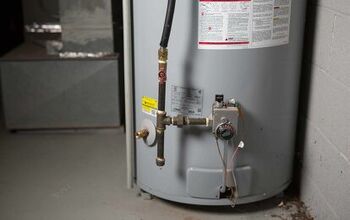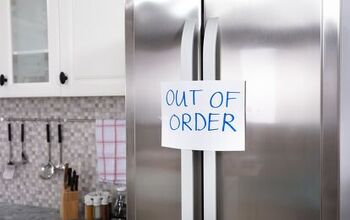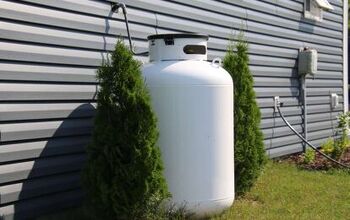Home Fixes You Must Complete Before Selling

After binge-watching real estate shows, you might think you need to fix everything in your house before you can list it. But the truth is, you can overdo it. Some things just aren’t worth repairing or upgrading before you sell. However, there are undoubtedly home fixes you must complete before selling.
Concentrate on repairing major structural and mechanical problems before you sell your house. Replace things that are overly dirty and stained, like flooring and grout. Minor remodels in the kitchen and bathrooms provide larger ROIs and attract more buyers, as does great curb appeal. Finish small, minor repairs and make small cosmetic changes to lighten potential buyers’ to-do lists.
Are you about to list your home on the market? There’s no denying it’s a big job, but don’t roll up your sleeves and grab your toolbox just yet. Start with a plan, focus your energy and effort on what you should fix before selling, and don’t sweat the rest.
Should I Sell My House As Is Or Fix It Up?
There are times when selling your house as is makes sense, but consider several factors first. If you want to sell the home quickly and are willing to accept a lower price, leaving it as is in a seller’s market could work for you. However, in a buyer’s market, many people won’t even look at a home that needs work.
If you decide to sell as is and won’t make any repairs, you’ll likely attract more contractors or investors looking for a deal. Your best bet in this scenario is to price the home low to attract multiple offers.
Regardless, assess the current state of the market and talk with a professional real estate agent to review your various options. Also, look at the condition of comparable homes for sale in your area.
What Should I Repair Before Selling?
Many buyers prefer to purchase a home that is in move-in condition. Even house hunters that claim they’re looking for a fixer-upper usually only want to take on minor repairs. These buyers might be okay with painting, changing out flooring, and other cosmetic fixes.
However, they typically don’t want to tackle major foundation issues, install a new roof, or replace the HVAC system immediately. Therefore, keep this information in mind when you’re deciding what to repair before selling your house.
It’s also vital to consider your potential return on investment (ROI). Some home renovations and upgrades put more money in your pocket than others. Therefore, consider the financial impact of various renovations and how they will affect your bottom line.
In a nutshell, here are the things you should repair before selling your home.
1. Big-Ticket Structural And Mechanical Problems
It’s best to resolve large structural and mechanical issues before you list your house. Exterior issues like rotting wood, foundation problems, a leaky roof, and other structural failings are major red flags to buyers. Likewise, significant plumbing and electrical issues, a failing HVAC system, and similar factors will send most buyers running for the hills.
If you’re struggling to decide whether you should fix something before selling, assess how much of a hassle it is. In other words, many buyers (even those okay with a fixer-upper) don’t want to deal with overly large, costly, stressful projects.
Therefore, they’re more likely to offer you a deeply discounted price to make it worth their while. (Which, in turn, probably isn’t worth it to you.) Otherwise, they’ll simply no longer consider your home among their options.
But if you go ahead and handle the repairs, the buyers will be more willing to pay the higher price tag. Your house remains a contender when buyers aren’t faced with such overwhelming repairs.
2. Landscaping And Curb Appeal
If there’s one thing that turns up on pretty much every real estate agent’s to-do list for their sellers, it’s to boost curb appeal. Your home’s curb appeal is its first impression, so if it doesn’t wow buyers, then they could pass up your house.
It’s worth putting some time and money into giving your home’s exterior a facelift. It doesn’t have to cost a ton. Clean up the yard and garden, add some simple landscaping, and put a fresh coat of paint on the front door. Make sure your outside lights work and replace things like broken shutters, sagging gutters, and rotting posts.
3. Minor Repairs
Buyers love a house that doesn’t come with a long to-do list. Often, small repairs are simple to DIY and don’t cost a lot of money. You should tackle these projects so your buyer doesn’t have to do them.
These small tasks might be things like replacing loose cabinet hardware, patching cracks, and filling small holes in walls. Other examples are fixing broken tiles and freshening up paint.
Neglecting to complete these small tasks will stand out like a sore thumb to buyers. Instead of imagining themselves living in your home, they’ll only be able to think of all the stuff they need to do.
4. Small Cosmetic Changes
Similar to handling minor repairs, you can also make a few small cosmetic changes to increase your home’s overall appeal. You don’t need to overhaul your entire home design. Doing this often ends up costing way too much time and money, and you won’t see a great return on your investment.
Instead, focus on things like adding neutral paint colors throughout the home and removing personal items and clutter. This is a good topic to discuss with your real estate agent. They will be in touch with how comparable homes in your neighborhood look. Your agent can advise you on what small changes are worth your while and which are unnecessary.
5. Dirty, Worn-Out Flooring
Pull up stained, dirty carpet. Replace dirty, cracked, peeling floors. Not only do these things make your home look old, they also make it look poorly maintained. Buyers might start to wonder what else is wrong.
Plus, flooring isn’t a small expense, so many buyers don’t want to get a house that requires them to replace floors immediately. If your floors are in great condition and just a bit outdated, it might not be worth changing them. But if they’re damaged or stained, replace them before you sell.
6. Outdated Bathrooms
You’ve heard the mantra — kitchens and bathrooms sell houses. If you’re going to put bigger bucks and time into certain areas of your home, this is where to do it. But don’t price yourself out of your neighborhood. Again, talk with your agent for their recommendations.
At the very least, make sure your bathrooms are spotless. Nobody wants to buy someone’s filthy bathroom. If you can’t replace the tile, at least clean it and regrout it. If the toilet is gross, get a new one. Fixtures rusted? Replace them. Make your bathrooms sparkle and replace anything you can’t get 100% clean.
7. Torn Window Screens And Broken Windows
If your windows are in good condition, there’s no need to replace them. But you definitely want to replace torn screens and broken glass. Don’t bother updating window treatments, since most buyers likely want to get some that fit their own style anyway.
8. Water Stains
Water stains are huge red flags to buyers. They start to wonder what happened, if it was fixed, if there’s still a leak, etc. Don’t scare your buyers. Get rid of water stains using high-quality stain-blocking primers and a fresh coat of paint. Of course, it’s imperative that you also fix the root cause of the water stain.
9. Outdated Kitchen
If your kitchen looks like it’s stuck in a time warp, it’s worth updating it before you sell. Kitchen renovations have some of the biggest returns on investments. However, here’s where it gets super important. Don’t over-renovate. The biggest kitchen renovation returns are on minor remodels, at roughly 81%.
Minor kitchen remodels typically leave the space’s footprint the same. You also likely retain the same cabinets but perhaps replace the fronts. Updating hardware, countertops, and repainting are other common projects.
If you live in a more upscale neighborhood, a larger remodel could be worth it, but these usually have a lower ROI. These types of renovations include things like new cabinets, adding an island, maybe taking out a wall, etc.
But unless your kitchen is in dire straits, a minor remodel is likely your best course of action when selling. However, consider the big picture. Does your home need other major repairs or are you on a tight budget? If there’s nothing functionally wrong with your kitchen, remodeling might not make sense.
10. Gross Grout
We touched on this a bit under outdated bathrooms, but if you have filthy, grimy grout anywhere in your home, get rid of it. If you can’t get it clean, replace it. Remove the old grout and regrout. This takes some elbow grease but doesn’t cost a lot. However, it will pay you back in dividends when it comes to buyer appeal. Gross grout is a huge turn-off to pretty much everyone.
What Not To Fix When Selling A House
Of course, on the opposite side of the spectrum, you have what not to fix when selling a house. Generally, costly cosmetic upgrades, partial repairs, and upgrading outdated window treatments and light fixtures are not worth it. Most buyers will likely plan to do these types of things anyway so they can ensure it fits their personal style.
It’s also not necessary to purchase brand-new major appliances unless your current ones are not working properly. For example, if your existing furnace is in great condition, buying a new one isn’t going to get you a big ROI. But replacing a furnace that’s functioning poorly would be something to consider.
What’s The Average Cost To Fix Up A House To Sell?
The cost to fix up your house before you sell varies. Your final price tag depends on your home, current condition, size, location, and the specific fixes necessary.
If you only have a few minor repairs and problems to address, you might only spend a few thousand. However, if you have a lot of deferred maintenance, it could cost you closer to $20,000. (This would encompass things like water leaks, electrical damage, termites, mold, etc.)
Consult with your real estate agent to determine what you should concentrate on based on comparable homes for sale in your area. Then, talk with trusted professionals to get several estimates for the jobs you must complete. Weigh the ROI against how long the repairs and renovations will take and how soon you need to sell.
When Is A House Not Worth Fixing Up?
In most cases, if you want to get the best offer for your home, some fixing up before selling is worth it. What’s important to keep in perspective is not wasting time on certain repairs that aren’t worth it.
But what if your home is literally condemned, or it needs to be entirely gutted? If this is your situation, cutting your losses and selling your home as a tear-down might be your best option.
If you aren’t sure which direction to go, consult with trusted professionals who can help you make an informed decision. Consider what lots sell for in your area, the demand for your neighborhood, how many other homes are available, etc.
Getting Your House Ready For A Sale
To attract the most buyers and the best offers, you want to put your home’s best foot forward when selling. Therefore, you often need to make some repairs and upgrades before you list your house. But this doesn’t mean you need to fix absolutely everything. Stick with things like minor repairs, major structural and mechanical issues, and small cosmetic changes.
Focus your efforts on your kitchen and bathrooms, decluttering, and boosting your home’s exterior curb appeal. It’s also vital to make sure your home is clean from top to bottom. Therefore, replace dingy toilets, filthy grout, and stained, worn-out flooring.
Getting informed input from your real estate agent is essential so you don’t over-improve your property. Striking the perfect balance between what to fix and not to fix when selling your house leads to a successful sale.
Related Guides:

Stacy Randall is a wife, mother, and freelance writer from NOLA that has always had a love for DIY projects, home organization, and making spaces beautiful. Together with her husband, she has been spending the last several years lovingly renovating her grandparent's former home, making it their own and learning a lot about life along the way.
More by Stacy Randall













![The 5 Best Angle Grinders – [2022 Reviews & Buyer's Guide]](https://cdn-fastly.upgradedhome.com/media/2023/07/31/9071326/the-5-best-angle-grinders-2022-reviews-buyer-s-guide.jpg?size=350x220)

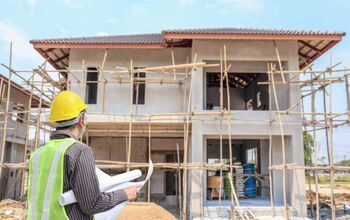




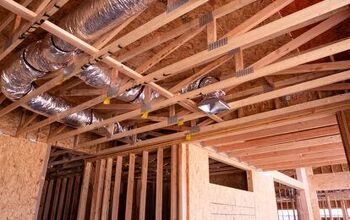
![Standard Dining Room Table Dimensions [for 4, 6, 8, 10 and 12 People]](https://cdn-fastly.upgradedhome.com/media/2023/07/31/9074335/standard-dining-room-table-dimensions-for-4-6-8-10-and-12-people.jpg?size=350x220)

